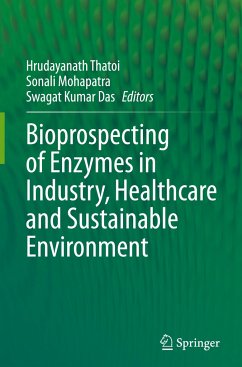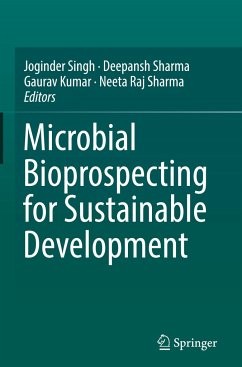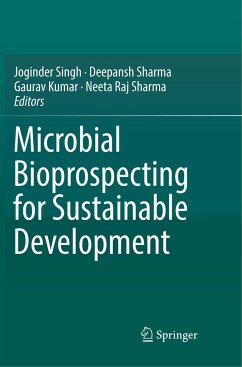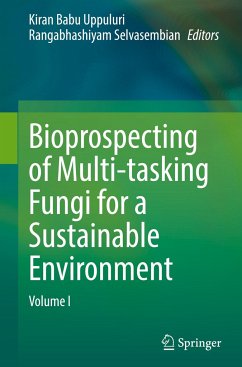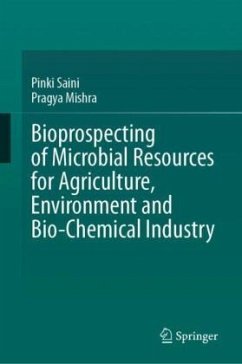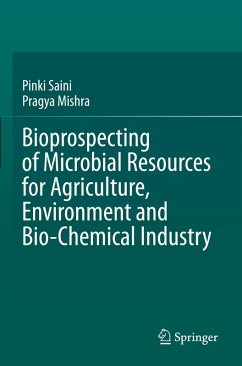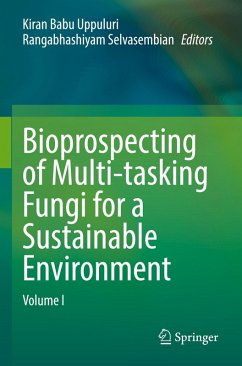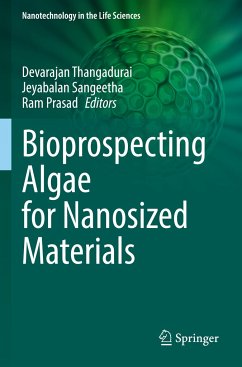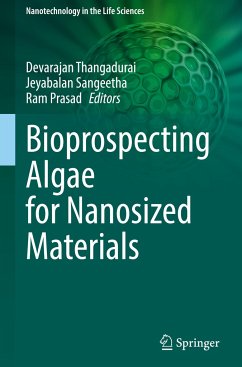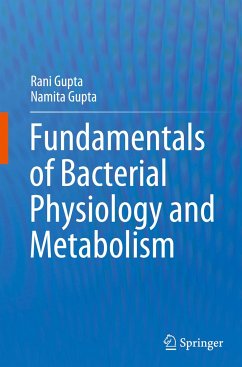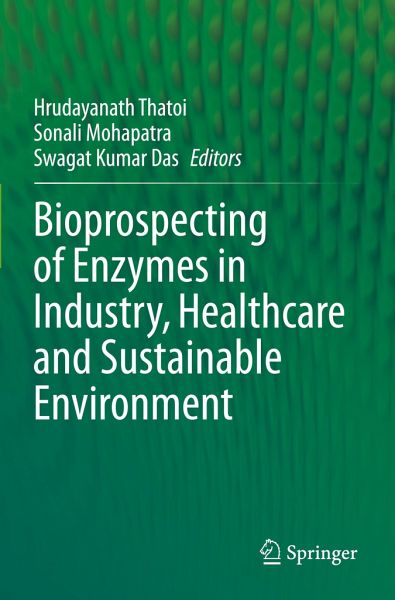
Bioprospecting of Enzymes in Industry, Healthcare and Sustainable Environment
Versandkostenfrei!
Versandfertig in 6-10 Tagen
121,99 €
inkl. MwSt.

PAYBACK Punkte
61 °P sammeln!
The rapid urbanization and industrialization of developing countries across the globe have necessitated for substantial resource utilization and development in the areas of Healthcare, Environment, and Renewable energy. In this context ,this resourceful book serves as a definitive source of information for the recent developments in application of microbial enzymes in various sectors. It covers applications in fermentation processes and their products, extraction and utilisation of enzymes from various sources and their application in health and biomass conversion for production of value added...
The rapid urbanization and industrialization of developing countries across the globe have necessitated for substantial resource utilization and development in the areas of Healthcare, Environment, and Renewable energy. In this context ,this resourceful book serves as a definitive source of information for the recent developments in application of microbial enzymes in various sectors. It covers applications in fermentation processes and their products, extraction and utilisation of enzymes from various sources and their application in health and biomass conversion for production of value added products. Different chapters discuss various areas of bioprospecting in enzyme technology, and describe why these are the mainstays for industrial production of value added products. The rich compilation of the cutting-edge advances and applications of the modern industrial based techniques hold feasible solutions for a range of current issues in enzyme technology.
This book will be of particular interest for scientists, academicians, technical resource persons, engineers and members of industry. Undergraduate and graduate students pursuing courses in the area of industrial biotechnology will find the information in the book valuable. General readers having interest towards biofuels, enzyme technology, fermented food and value added products, phytochemicals and phytopharmaceutical products will also find the book appealing. Readers will discover modern concepts of enzymatic bioprocess technology for production of therapeutics and industrial value added products.
This book will be of particular interest for scientists, academicians, technical resource persons, engineers and members of industry. Undergraduate and graduate students pursuing courses in the area of industrial biotechnology will find the information in the book valuable. General readers having interest towards biofuels, enzyme technology, fermented food and value added products, phytochemicals and phytopharmaceutical products will also find the book appealing. Readers will discover modern concepts of enzymatic bioprocess technology for production of therapeutics and industrial value added products.





